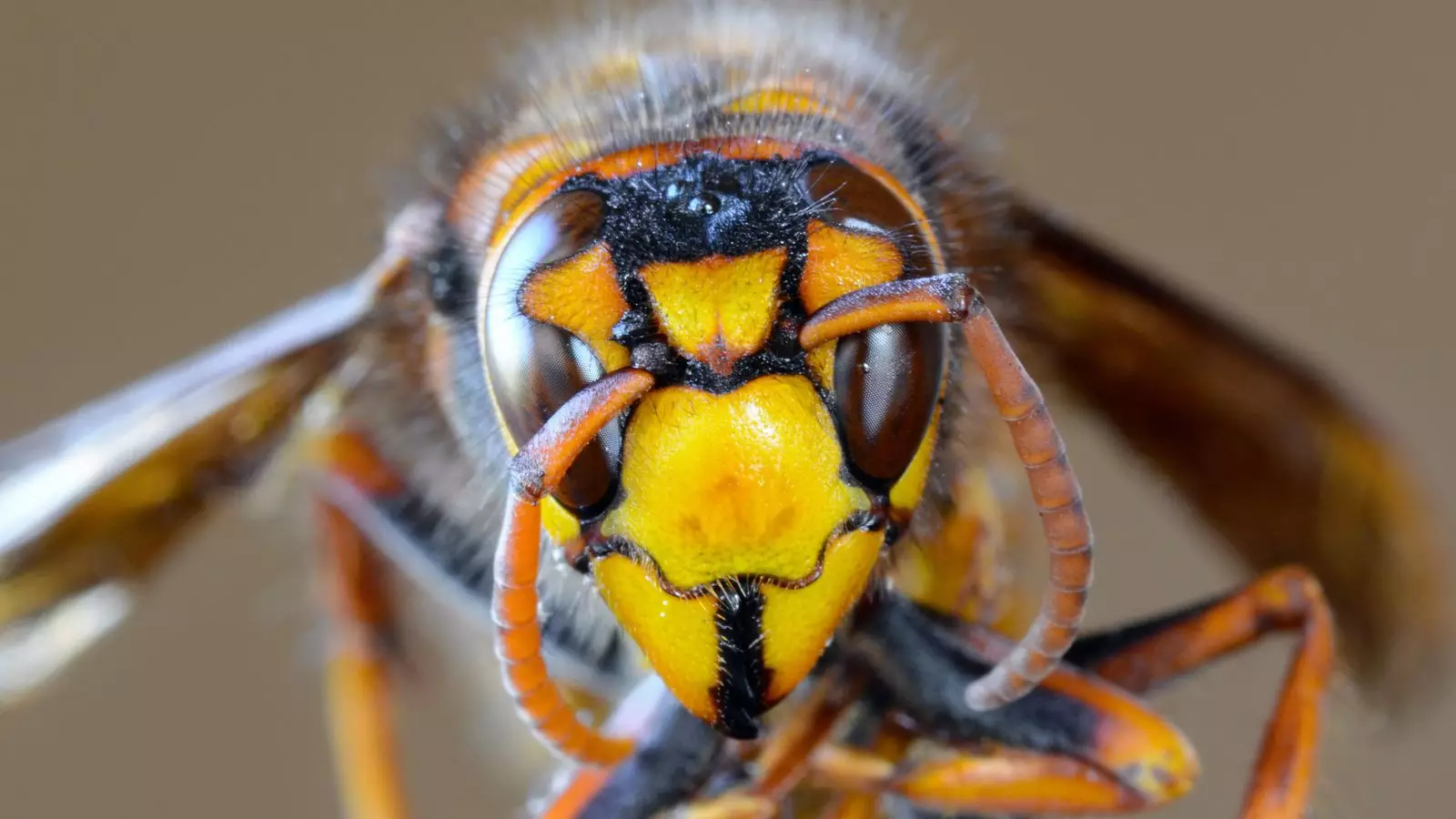In the midst of a potential surge in damaging invasive non-native species, people are being urged to report sightings of Asian hornets this summer. The UK’s chief plant health officer, Nicola Spence, has emphasized the importance of beekeepers and the wider public reporting any sightings of the hornets, especially after a record number were spotted in the country last year.
While Asian hornets pose no greater risk to human health compared to native hornets, they do pose a significant threat to honey bees and other insect pollinators. With the ability to consume up to 50 honeybees a day, these invasive insects are not to be taken lightly. Paul Hetherington, director of communications and engagement at the Buglife charity, has issued a warning that Asian hornets are likely breeding and living in the UK, highlighting the urgency of the situation.
The Department for Environment Food & Rural Affairs (DEFRA) has stated that the Asian hornet species is not yet established in the UK. However, early trapping and reporting of sightings are fundamental to eradication efforts. With recent flooding and warming temperatures increasing the risk of problem species already in the UK, such as Japanese knotweed and giant hogweed, it is crucial to stay vigilant and take preventative measures to protect native biodiversity.
The Wildlife and Countryside Link (WCL), representing 83 nature organizations, is calling for a triple in the annual invasive species biosecurity budget to £3m. Additionally, they are urging for a further £3m to fund a permanent dedicated invasive species Inspectorate. Richard Benwell, WCL chief executive, emphasized the urgent need for government action to address the threats posed by invasive species.
Invasive species are already one of the biggest threats to the UK environment. From smothering waterways to outcompeting native species, these invasive species can cause significant damage to homes, businesses, and the economy as a whole. The coalition of organizations, including the River Trust, Plantlife, and Buglife, is advocating for investment in a fully-funded inspectorate and a strong invasive species strategy to halt nature’s decline and create a more resilient economy.
Members of the public are encouraged to report any sightings of the Asian hornet, recognizable by their very dark bodies, a wide orange stripe on the abdomen section, and yellow leg ends, via the Asian Hornet Watch App. The DEFRA spokesperson emphasized that invasive species pose a threat to native biodiversity and cost the economy billions every year, underscoring the importance of supporting efforts to protect the nation’s biosecurity.
The increasing threat of invasive species highlights the urgent need for both public vigilance and government action. By reporting sightings, taking preventative measures, and advocating for increased funding and action, we can protect our environment, biodiversity, and economy from the harmful impacts of invasive non-native species.

Leave a Reply